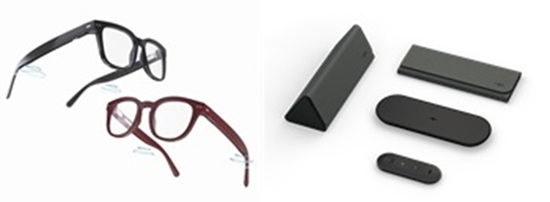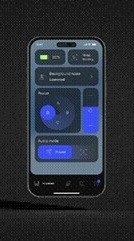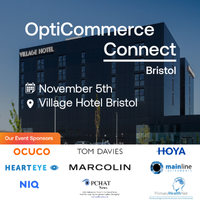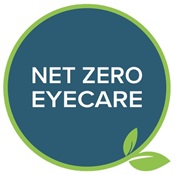audiology, New products and Services
Silent Struggles: Hearing Loss in an Ageing World
Silent Struggles: Hearing Loss in an Ageing World
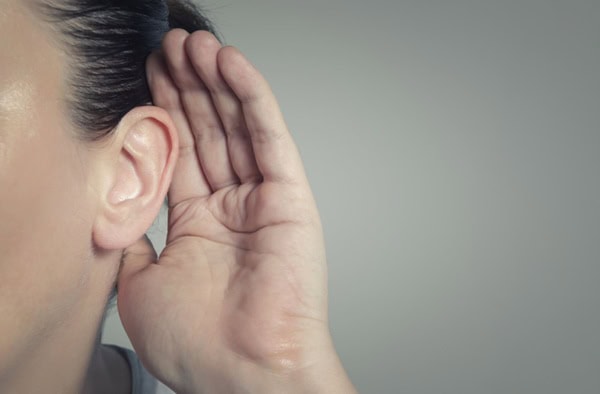
Understanding, Overcoming, and Embracing Solutions with Open Ears
Introduction: The Quiet Tide
There’s a gentle, nearly invisible wave rising around the world—a tide that sweeps through living rooms, bustling cafés, and quiet parks alike. It’s the hush that falls over conversations, the missed punchlines at family dinners, and the confusion that can cloud an otherwise joyful gathering. It is the growing prevalence of hearing loss among our ageing population—an issue that affects not just those who live with it, but family, friends, workplaces, and communities as a whole.
Hearing loss is not a new phenomenon, but the numbers are growing rapidly as populations age. According to the World Health Organization, by the year 2050, nearly 2.5 billion people worldwide will have some degree of hearing loss, and over 700 million will require hearing rehabilitation. Yet, for all its commonality, hearing loss still carries a stigma—a sense of embarrassment, particularly when it comes to wearing hearing aids. This is especially true for older adults who may not want to appear vulnerable, frail, or different from their peers.
In this extended feature, we’ll explore why so many people—especially men—ignore signs of poor hearing, what effects this has on individuals and society, and what can be done to change the narrative.
Why Hearing Loss in Ageing Matters More Than Ever
The world is getting older. Advances in healthcare, better nutrition, and safer environments mean we’re living longer than ever before. But with age comes a heightened risk of certain health issues, and hearing loss is one of the most common. In fact, presbycusis, or age-related hearing loss, affects roughly one in three people between the ages of 65 and 74, and nearly half of those older than 75.
Hearing loss is not merely an inconvenience. It can be a profound source of distress and isolation, impacting everything from communication and mental health to physical safety and overall quality of life.
The solution arrives ~ Nuance Audio Glasses
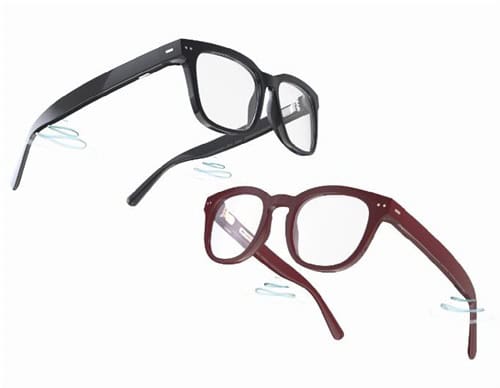
In this environment we welcome the arrival of Nuance Audio Glasses after the launch by EssilorLuxottica; a smart and invisible solution for mild to moderate hearing loss.
- With Nuance Audio, consumers will finally be able to see and hear clearly with a single product that is both beautiful and highly functional
- The glasses deliver a groundbreaking open-ear hearing solution seamlessly integrated into a pair of stylish smart glasses
- Paving the way for a disruptive new category in the med-tech space, Nuance Audio Glasses are classified as an over the counter medical device class IIa in the European Union. (see [1] & [2]
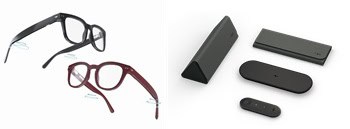
Available in the UK now from selected Optical and Audiology practices, the new smart glasses blend sound engineering and world-class smart eyewear design for a stylish, high-tech solution engineered to transform lives. Those with hearing loss will finally be able to see and hear clearly[1], with a single product that is both beautiful and highly functional.
How many Optometry and audiology practices have access to this product.
At Nuance Audio™, EssilorLuxottica’s mission is to ensure that as many people as possible with perceived mild to moderate hearing loss have access to effective solutions. By bridging the gap between awareness and action, Nuance Audio™ helps individuals begin their hearing loss journey sooner – ultimately improving their quality of life. As a result, they feel morally obligated to make sure Nuance Audio™ products are available across the UK, accessible to as many patients as possible.
Nuance Audio™ is available in independent opticians, hearing clinics and other high street retailers.
EssilorLuxottica is actively expanding the distribution of Nuance Audio™ and inviting both new and existing optical and audiology partners to join them on this journey to bridge the gap between vision and hearing care for their customers.
If you’re interested in dispensing hearing glasses in practice and learning more, please get in touch with the EssilorLuxottica team via trademarketing@essilor.co.uk
Nuance Audio Glasses are classified as an over-the-counter medical device class II.a in the European Union, delivering a groundbreaking open-ear hearing solution seamlessly integrated into a pair of stylish smart glasses.
The Emotional Journey of Hearing Loss
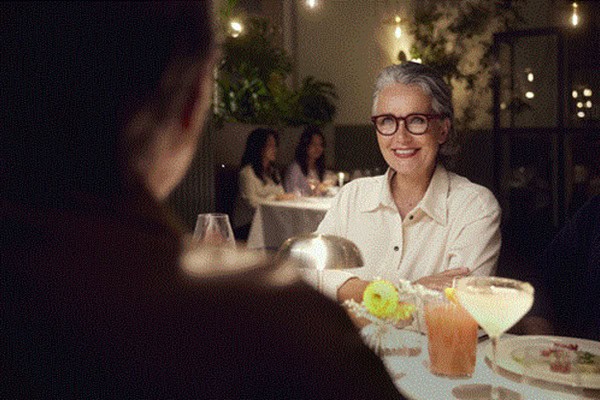
For many, the journey starts small: a missed word here, a mumbled sentence there, the TV volume creeping up notch by notch. Often, it’s not the person experiencing the hearing loss who first notices, but their loved ones. Frustrated partners, children, and friends may have to repeat themselves, leading to tension and misunderstandings.
Gradually, social invitations may become less appealing. Why go out if it’s so hard to follow the conversation? Why attend a family gathering if it means constantly asking, “What did you say?” Over time, this can lead to withdrawal, loneliness, and even depression.
Shame and Stigma: The Hidden Burden
The stigma surrounding hearing aids is persistent and strong. Many see them as a visible sign of ageing or disability—a badge of vulnerability. This sense of embarrassment or shame stops many from seeking the help they need. In some cases, people might rather struggle in silence than “look old” by wearing a device behind their ear.
This stigma is particularly pronounced among those who were raised to value independence and self-reliance—traits that are often celebrated in older generations. Admitting to hearing loss can feel like admitting defeat.
Nuance Audio Glasses seek to overcome these barriers.
Nuance Audio Glasses are the new invisible open-ear over the counter hearing solution for perceived mild to moderate hearing loss. Nuance Audio Glasses blend sound engineering and world-class smart eyewear design for a stylish, high-tech solution engineered to transform lives.
Nuance Audio Glasses use directional microphones and open-ear speakers to provide a comfortable and natural listening experience.
With the introduction of Nuance Audio Glasses, the EssilorLuxottica aims to meet the needs of approximately 1.25 billion people worldwide who experience mild to moderate hearing loss.
Are Men More Likely to Ignore Poor Hearing?
There is substantial evidence suggesting that men are indeed more likely than women to ignore problems with their hearing. Several factors contribute to this disparity:
- Socialization and Gender Norms: From a young age, men are often encouraged to be “tough” and self-sufficient. Seeking help—for anything—can be seen as a sign of weakness, and admitting to hearing difficulties is no exception.
- Workplace Identity: For many men, especially in technical or physical professions, keen hearing is tied to competence. Acknowledging hearing loss can be perceived as threatening to their professional identity, even post-retirement.
- Reluctance to Use Assistive Devices: Studies have shown that men are less likely to wear hearing aids, even when prescribed, compared to women. This may relate to concerns about appearance or perceptions of masculinity.
A 2018 study from the National Institute on Deafness and Other Communication Disorders found that while men are more likely to develop hearing loss (often due to occupational noise exposure), they are also less likely to take action. Women, on the other hand, are generally more proactive about seeking medical advice and adapting to hearing aids.
The Effects of Poor Hearing: Far Beyond the Ears
Hearing loss is often dismissed as a minor inconvenience or an inevitable part of getting older. But its impacts run deeper—and wider—than many realise.
Social Isolation and Loneliness
When hearing becomes difficult, participating in conversations and social activities can seem daunting. Many withdraw, leading to social isolation, which is a significant risk factor for depression and cognitive decline.
Cognitive Impact: The Link to Dementia
Several large-scale studies have revealed a concerning link between hearing loss and accelerated cognitive decline. Older adults with hearing loss are up to five times more likely to develop dementia, including Alzheimer’s disease, compared to those with normal hearing.
Relationship Strain
Communication is the lifeblood of healthy relationships. Unaddressed hearing loss can lead to misunderstandings, frustration, and emotional distance between spouses, children, and friends. In one survey, over 40% of respondents said their partners became “annoyed” because of their hearing difficulties.
Economic Impact
Poor hearing can lead to early retirement, reduced job performance, and lower earning potential. The invisible cost to both individuals and society is immense, with billions lost annually to unaddressed hearing loss worldwide.
So How will Nuance Audio allow those with hearing loss to wear with confidence?
- Invisible hearing aid: Breaking the stigma with discreet, stylish glasses that seamlessly integrate vision and hearing support.
- Open-ear comfort: Lightweight, open-ear speakers offer all-day comfort.
- All-in-one solution: A comprehensive solution addressing both vision and hearing needs in one elegant device.
- Directional amplification: Enhance speech clarity with directional microphones & beamforming.
- Easy to use: Simple to set up on your own with a user-friendly experience.
- Sun Protection and UV: Nuance Audio are fitted with non-prescription photochromic lenses as standard
Styles and Packaging
Nuance Audio Glasses are available in two styles, Square (size 54 and 56) and Panthos (size 48), and two different colours to complement any look.
Changing Attitudes:
One of the most effective ways to overcome stigma is to normalise the use of hearing aids. Just as glasses are seen as a stylish and common accessory for vision, hearing aids should be viewed as empowering tools that enable full participation in life.
What better way to solve these problems than to offer Nuance Audio Glasses to your patients. Many practices now involve hearing services and the ability to offer Nuance Audio provides an elegant and hidden solution to so many patients.
The development of smarter, more discreet, and more affordable hearing solutions continues apace and Nuance Audio from EssilorLuxottica is leading the way.
User experience – Nuance Audio App
The Nuance Audio App [5] is the essential Nuance Audio Glasses companion. The app is mandatory for audio calibration and firmware updates and allows users to personalise the Nuance Audio experience [6] by:
- Managing noise reduction level: users can customise the background noise level they want to hear with three levels of noise reduction.
- Switching between alternative audio modes: Frontal, to focus on face-to-face conversations, and All-around, to amplify all surrounding sounds.
- Setting your preferred preset options for a tailored hearing experience. Users can choose from the different pre-configured amplification settings (A, B, C or D) the one that best suits their hearing needs.
- Adjusting the volume of amplification on a scale from 1 to 5.
Conclusion: Hearing Loss Is Everyone’s Business
As our world grows older, it’s time to listen—to the needs of those with hearing loss, to the experts’ charting solutions, and to one another. By recognising the silent struggles and celebrating the victories, we can create a society in which hearing loss is not a source of shame, but simply another challenge to be met with compassion, innovation, and open ears.
In the end, the message is simple: Don’t suffer in silence. The world is full of voices, music, laughter, and love—and everyone deserves to hear it.
The opportunity to improve the lives of your patients and customers is in your hands with Nuance Audio Glasses….what a fantastic practice builder!
The Editor is to be supplied by EssilorLuxottica with a prescription model of Nuance Audio to try out the practical experience. He has moderate loss of high pitch frequencies in both ears from his years of drumming in bands. He also has a minor loss of overall hearing in the right ear. He will report back his experiences to Opchat News readers shortly.
- EssilorLuxottica received clearance from the Food and Drug Administration (FDA) for its OTC Nuance AudioTM Glasses and received CE marking under the EU Medical Devices Regulation (MDR), meaning they comply with medical device safety and performance requirements.
- In January 2025, the Department of Health and Social Care (DHSC) issued an official policy statement and guidance explicitly enabling the sale of OTC hearing aids in Great Britain.







